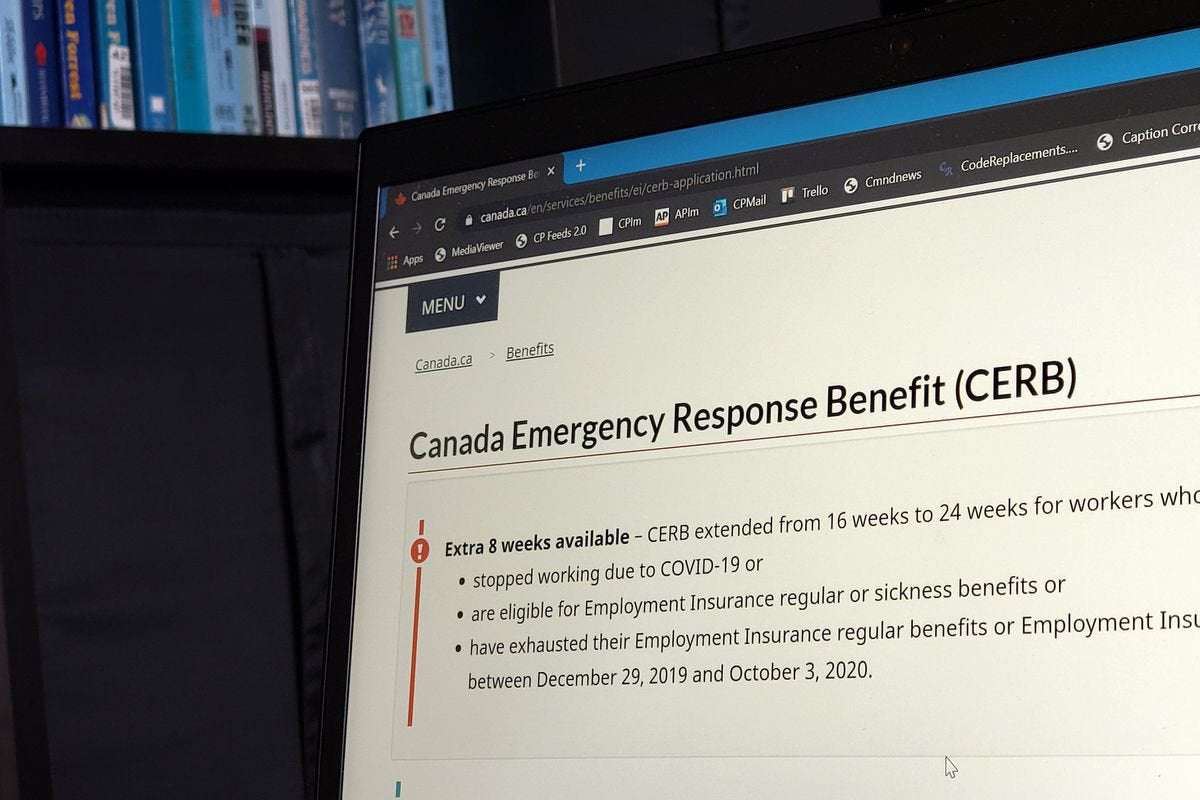Amin Mawani is an associate professor of taxation at the Schulich School of Business at York University in Toronto.
Almost 8.9 million Canadians, or nearly 24 per cent of the population, applied for the Canada Emergency Response Benefit. Of those, 441,000 or almost 5 per cent of CERB recipients have been sent warning letters suggesting that they may need to repay some or all of their CERB benefits because their earned incomes in the 12 months prior to the application date may not have exceeded $5,000.
CERB was designed for working Canadians whose livelihoods were interrupted by the lockdown brought about by COVID-19. It was not designed for students, the retired or the unemployed, nor for those who live off their investment incomes. As the CRA letter states, “To be eligible for CERB, you must have earned employment or self-employment income of at least $5,000 in 2019 or in the 12 months before the date of your application.” Such earned income specifically excludes passive income such as interest on savings and dividends from public corporations, as well as capital gains and pension income since such incomes would not be curtailed by a lockdown.
For earned income to reflect self-employed taxpayers’ abilities to pay income taxes, it logically has to be net income and not gross income. An Uber driver does not pay income taxes on her gross income since she has to pay for costs such as gas and insurance that are necessary to earn income. Income taxes are imposed on net incomes for the self-employed. Making a self-employed Uber driver pay taxes on her gross income would be inequitable compared with taxing a waiter on his wages and tips when he does not have to incur any expenses to earn them.
The letters from the CRA were not sent randomly – it possesses information about taxpayers’ historical earnings during 2019 and could extrapolate the earned incomes for the first few months of 2020.
The program was poorly designed by the CRA because taxpayers can unethically claim that they earned more in income during the first few months of 2020 to reach the minimum threshold of $5,000 for the 12 months ending on the dates they started to apply for CERB. Incomes of up to $13,229 in 2020 will not attract any income taxes, so overreporting income to avoid repaying CERB may not trigger any additional income taxes (assuming this was the only source of income).
Applicants who are being asked to repay some or all of their CERB benefits because they may have incorrectly interpreted the $5,000 minimum threshold to be applicable to their gross self-employed earnings could underreport their self-employment expenses in order to overstate net self-employment earnings. Doing so would be illegal and unethical. While overstating incomes at such levels does not trigger additional taxes, the Income Tax Act requires taxpayers to attest that any information disclosed in the tax return is “correct and complete.” Failure to report truthfully could require repayments of CERB benefits plus penalties and interest.
CRA officials and the Prime Minister have been eager to assure Canadians that such repayments do not have to be made by the end of this year. CRA does offer letter recipients that “if you are unable to immediately repay the amount, we can make an arrangement to give you more time and flexibility based on your ability to pay.” For Canadians earning in the vicinity of $5,000 annually, repayments of $12,000 to $16,000 based on ability to pay could take a long time if the claimants have spent their CERB benefits.
News commentators have been speculating whether the CRA would consider forgiving such repayments if the misinterpretation of CERB eligibility rules were made in good faith. However, overlooking such repayments would be tantamount to penalizing those who took the trouble to read and understand the CERB rules correctly. Repayments are clearly material to Canadians earning in the vicinity of $5,000 annually. However, forgiving CERB repayments could be inequitable to taxpayers who refrained from applying for the benefit because they understood the CERB rules or sought proper tax advice. The government and the CRA find themselves in a quandary that may not be easy to exit.
Your time is valuable. Have the Top Business Headlines newsletter conveniently delivered to your inbox in the morning or evening. Sign up today.

drunkmme on December 23rd, 2020 at 01:21 UTC »
Has anyone been able to quantify the problem? Are we talking about people that made more than 5K gross, but less than 5K net?
What does that represent I terms of dollars or number of people etc?
Evadt on December 23rd, 2020 at 00:56 UTC »
If you were found ineligible the convert CERB into a 0% interest loan and clawback GST and Tax returns until it is paid back.
DasItBrahJr on December 23rd, 2020 at 00:36 UTC »
Agreed. This isn't just a few hundred dollars. In many cases this will be letting undeserving recipients pocket $10,000.00 or more. That would an absolute slap in the face to those who chose not to defraud the system.